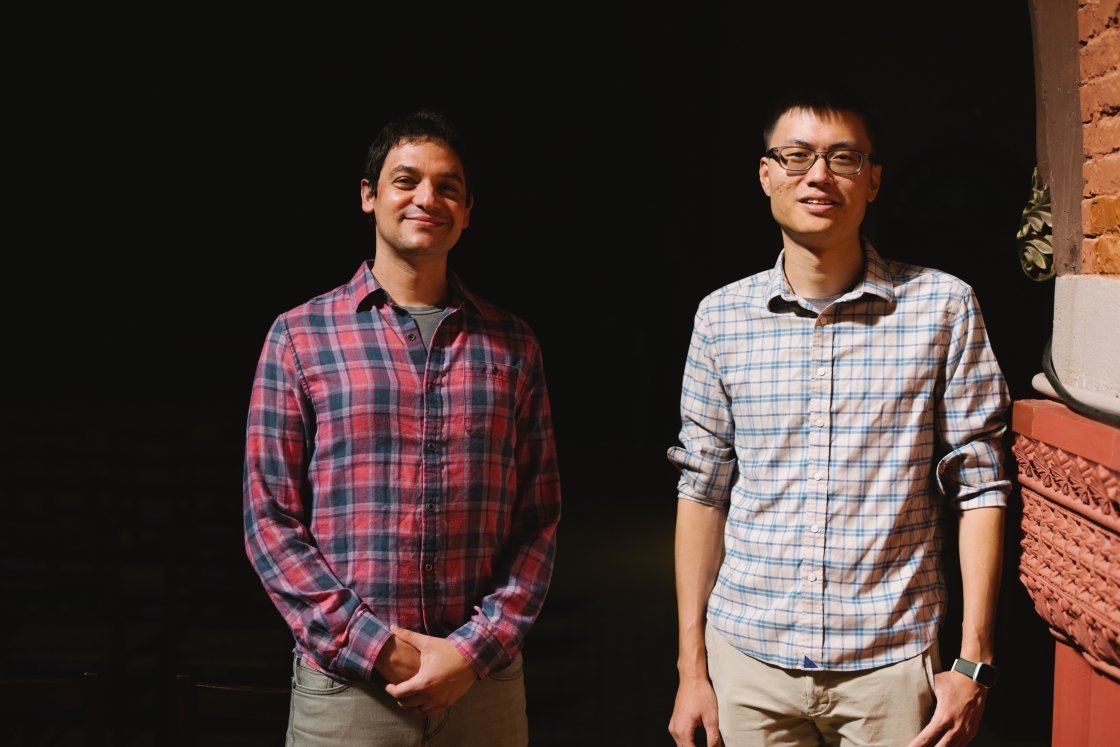April 24, 2019 – A team from Dartmouth’s Thayer School of Engineering that designed a greenhouse for Mars has been announced the winner of the 2019 NASA BIG Idea Challenge today at Langley Research Center in Hampton, Virginia.
The Dartmouth team, comprised of undergraduate students, was honored for their design of a multi-use greenhouse that allows astronauts to grow their own food on the red planet.
“The BIG Idea Challenge has been an amazing experience and I’m thrilled that we won,” said Zoe Rivas, co-manager of the Dartmouth team. “I’m so excited to see what happens next with our greenhouse design and what NASA will do with all of the great ideas we saw in this competition.”
Image  | |
|
The winning Dartmouth design, named DEMETER after the ancient Greek goddess of harvest, growth and nourishment, was judged for innovation on food production and crop cultivation as well as mechanical and aerospace engineering elements of the design.
The Dartmouth greenhouse can grow eight food crops—kale, soy, sweet potato, potato, broccoli, strawberry, wheat, and chufa—in a rotating, nutrient-filled, hydroponic system that provides enough nourishment for a four-person crew on a 600-day surface mission to Mars.
“I can’t begin to explain how exciting this is,” said Alexa Escalona, the team’s co-manager. “This validates all of the late nights and hard work. It was an amazing experience in general, and coming in first place still feels surreal. We had tons of people supporting us, and we couldn’t have done it without all of them.”
In addition to growing food in the hostile Mars environment, Dartmouth’s DEMETER (Deployable Enclosed Martian Environment for Technology, Eating, and Recreation) greenhouse proved that it could be transported millions of miles from Earth, deployed, and then sustained with limited technology and resources.
To support the emotional health and well-being of astronauts, the greenhouse also features an exercise area and relaxation space designed to help astronauts who will live in early Martian outposts composed mostly of red dust and little scenic variety.
“I am thrilled with the outcome,” said Laura Ray, interim dean of Thayer School of Engineering. “The NASA challenge demanded a systems-thinking approach, and that’s precisely what a Thayer education provides. The team was methodical and dedicated and they ended up winning the day against fantastic competition.”
NASA’s 2019 Breakthrough, Innovative, and Game-changing (BIG) Idea Challenge searched across the country for innovative ideas for the design, installation and sustainable operation of a habitat-sized Mars greenhouse. Dartmouth was one of five finalists selected earlier this year by NASA and the National Institute of Aerospace (NIA).
Members of the winning team will now have a shot at landing internships at NASA this summer.
The BIG Idea Challenge is meant to support NASA’s Game Changing Development program to rapidly bring to fruition high-impact technologies. The challenge, organized jointly by NASA and NIA, was open to teams of undergraduate and graduate students studying in fields applicable to human space exploration.
“The Dartmouth team used top-notch systems engineering throughout their design,” said Kevin Kempton, Game Changing Development program element manager, and a 2019 BIG Idea Challenge judge. “It was all laid out in a very credible way. The design looked very effective for what it needed to do and they also had some nice potential for recreation. I thought it was well done, overall.”
The Dartmouth team co-managed by Zoe Rivas and Alexa Escalona was comprised of David Dick, Grace Genszler, Thomas Hodsden, Peter Mahoney, Morgan McGonagle and Christopher Yu.
###
Editor’s Notes:
Videos featuring DEMETER and the project team:
https://www.youtube.com/watch?v=vpZZP5eXq4I&feature=youtu.
For further reference, here is the NASA story:
For more information on Thayer School of Engineering:
https://engineering.dartmouth.edu
For more information about the 2019 BIG Idea Challenge, visit: http://bigidea.nianet.org/

